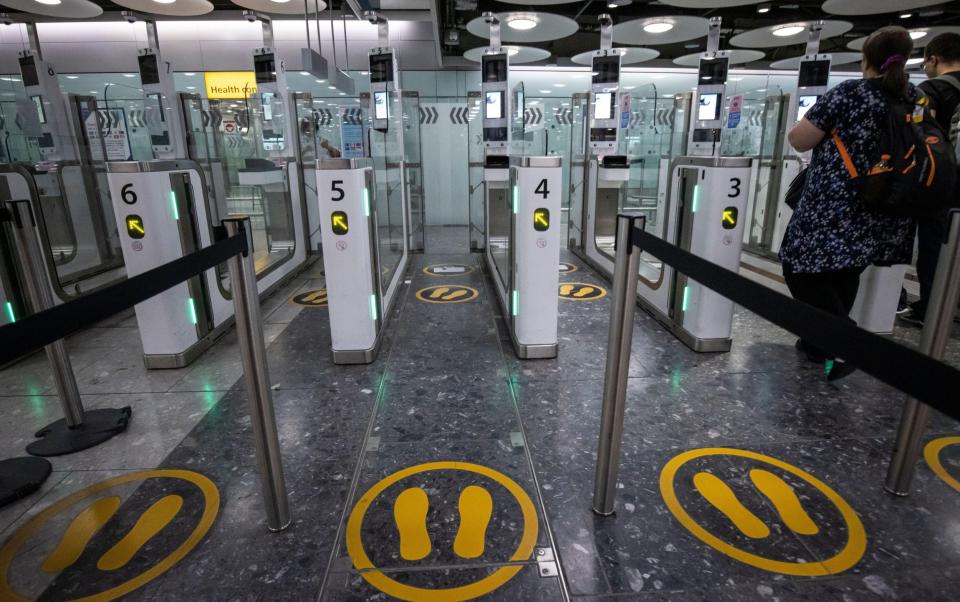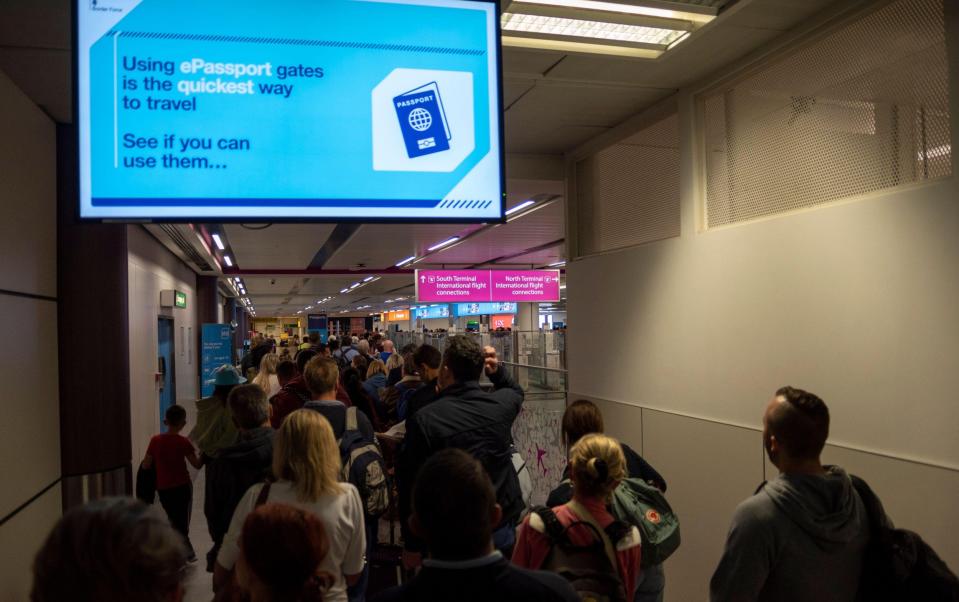This week, the Border Force announced plans for more “frictionless” travel thanks to a “smart border” run by facial recognition cameras at electronic gates. It means that when you travel through UK airports, although you will still need to carry your passport, you won’t necessarily have to show it to officers or even passport reading machines. Although the plans promise greater convenience, the plans may have hidden costs, introduce serious privacy threats, risks of technical failures and costs to the taxpayer. “Frictionless”, isn’t it.
International travel is the easiest activity in the world. And yet over the past 20 years, it has been eclipsed by increasingly oppressive airport experiences, from break-downs to full-body scans. Then the passport queues are terrifying – so most of us would do anything to make it less stressful and faster.
E-gates certainly have the potential to offer speed – but for non-UK travelers it may mean filling in online forms and scanning your passport on a smartphone, which can be more difficult for older passengers and people with disabilities. Additionally, facial recognition technology is currently inaccurate and struggles with darker skin tones, aging, and, of course, twins. However, 1:1 biometric face check, which compares a passport photo to the face looking at the camera, is widely accepted as a fast and secure way to verify identity.
But behind these seemingly convenient electronic gateways, there is a whole new, massive infrastructure related to our digital information. Instead of showing a paper passport to a human officer like we all used to, the officer is now a machine and has your passport, photos, biometric data and potentially more information in a huge database. The emergence of “smart” borders isn’t just a technological upgrade – it’s a change in our privacy rights.


How much this will be depends on how much data the Government decides to store and for how long. But in theory, e-gateways of this kind open up the possibility of collecting travel data and population biometrics over our lifetimes, as well as detailed records of thousands of visitors to the UK each year. Such a database would require very strong technological, human, political and legal safeguards to ensure that they are used safely and that individuals are not disadvantaged. And yet, when this great change from the Border Force was casually announced to the press, no mention is made of such safeguards.
How big it will be also depends on whether we can choose to use e-gateways. Currently, we can choose whether to use e-passport gates, and they require us to present our passport. But the difference with “frictionless” security is that the individual has less agency – your passport is effectively digitally picked up with high-tech cameras that scan your face and decide whether to grant or deny entry. . Unless substantially changed, the Government’s Data Protection and Digital Information Bill, currently going through parliament, will significantly weaken our data rights, paving the way for a country with many more cameras facial recognition, not just in airports but possibly everywhere.
Even if these “next generation” e-gateways start on a consent basis, that is unlikely to last. Indeed, barely before the plans were made public, Border Force director-general Phil Douglas told industry leaders that the use of human passport desks will fall in the next few years due to e-gates and the value of identification. details of your authorities. Although presented as an inevitable consequence of technological progress, human services not only “fall away” in the actions of nature but are lost, along with our privacy, to the latent techno-authoritarianism that underpins our some time.


For most of us, our passport is our most personal and sensitive piece of information. We put it in a drawer or store it at home – it’s the thing we worry about losing or having stolen. But changes like these take our passports out of our hands and further out of our control.
Mixed in with the hundreds of millions of passports, photos, visas and other people’s biometrics on massive databases that are searched over a hundred million times a year, there are huge new risks of loss, error – and even catastrophic hacks. Just three years ago in Estonia, “the most developed digital society in the world” – also known as “e-Etonia”, a hacker downloaded almost 300,000 personal identification photos after obtaining personal names and identification numbers from a government database .
Some of the risks associated with digitizing critical infrastructure are more subtle. During the May bank holiday last year, a routine system upgrade to the existing electronic passport gates brought Britain’s airports to a standstill, resulting in four-hour queues.
If getting your passport out of your pocket is reclassified as “friction”, it may be friction we should be willing to tolerate. It might be safer than the steady erosion of our privacy by a growing database state.